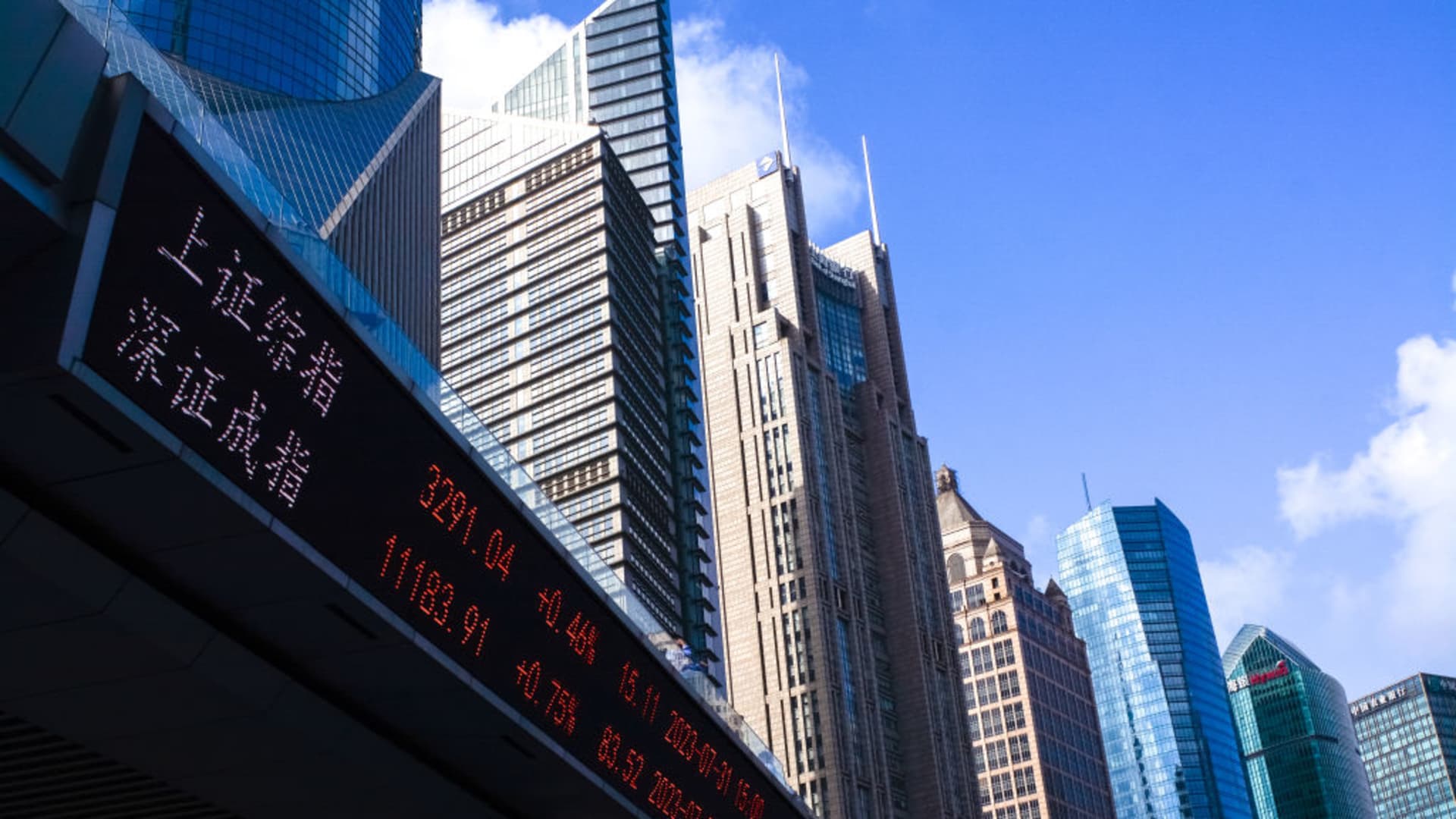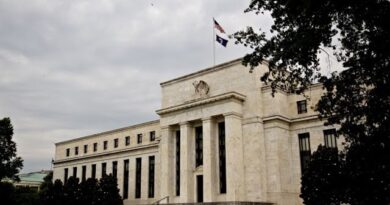Asia markets mostly higher, Aussie stocks open lower
General view of electric screen of Shanghai stock shares and Shenzheng shares are seen in front of high rise modern commercial and financial buildings at Lujiazui in Shanghai, China on July 31, 2023.
Ying Tang | Nurphoto | Getty Images
Asia-Pacific markets were mixed on the last trading day of 2023, with investors assessing prospects of electric-vehicle companies after China’s Xiaomi unveiled its first EV.
Chinese consumer electronics company Xiaomi on Thursday detailed plans to enter China’s oversaturated electric-vehicle market. Hong Kong shares of the company fell more than 3% after open.
The company seeks to compete with automaker giants Tesla and Porsche with a car model it says it spent more than 10 billion yuan ($1.4 billion) to develop.
Hong Kong’s Hang Seng index was flat at open, while China’s CSI 300 index rose 0.16%.
China and Hong Kong indexes rallied more than 2% each in the previous session, but were still set to be the biggest percentage losers for the year among major Asia-Pacific markets.
China’s CSI 300 index is down 11.8% for the year, while the Hang Seng has plunged 13.8% in 2023.
Japan’s Nikkei 225 fell 0.19%, but the index has gained 28.5% so far this year, making it Asia’s top-performing market.
The broader Topix was 0.24% higher, after having surged over 25% in 2023.
South Korea markets were shut on Friday, with the Kospi up 18.7% for the year and the Kosdaq jumping 27.5%.
Australia’s S&P/ASX 200 index dipped 0.22%, cooling off from two straight sessions of gains, but was still up 7.76% for the year.
Overnight, the S&P 500 finished marginally higher Thursday, closing in on a new all-time high in the penultimate trading day of what’s been a strong year for stocks.
The broad market index added 0.04% to finish at 4,783.35, putting it within striking distance of its highest closing level of at 4,796.56 set in January 2022.
The Dow Jones Industrial Average rose 0.14% to notch a fresh record closing high. The Nasdaq Composite inched down 0.03%.
— CNBC’s Evelyn Cheng, Samantha Subin and Alex Harring contributed to this report
Correction: This story has been updated to say that South Korea markets are closed for the day.



